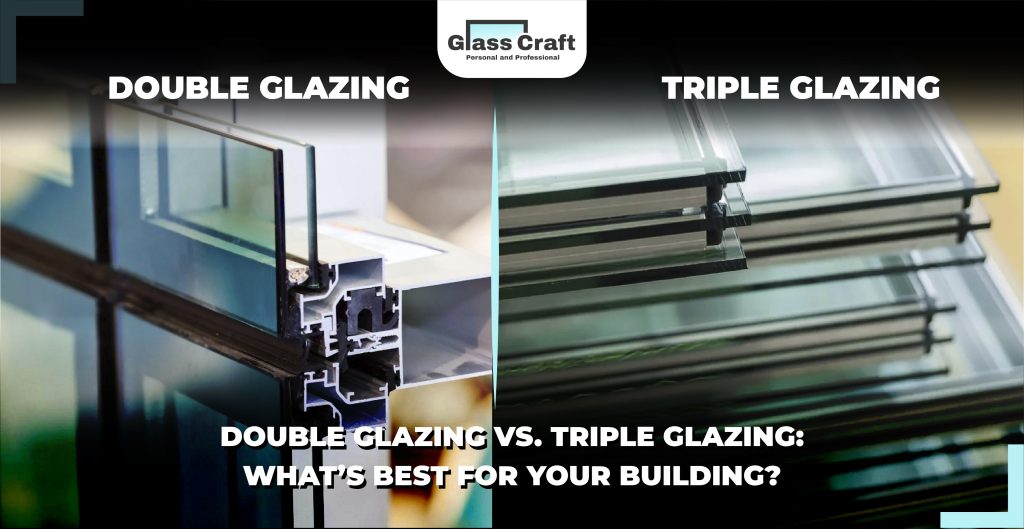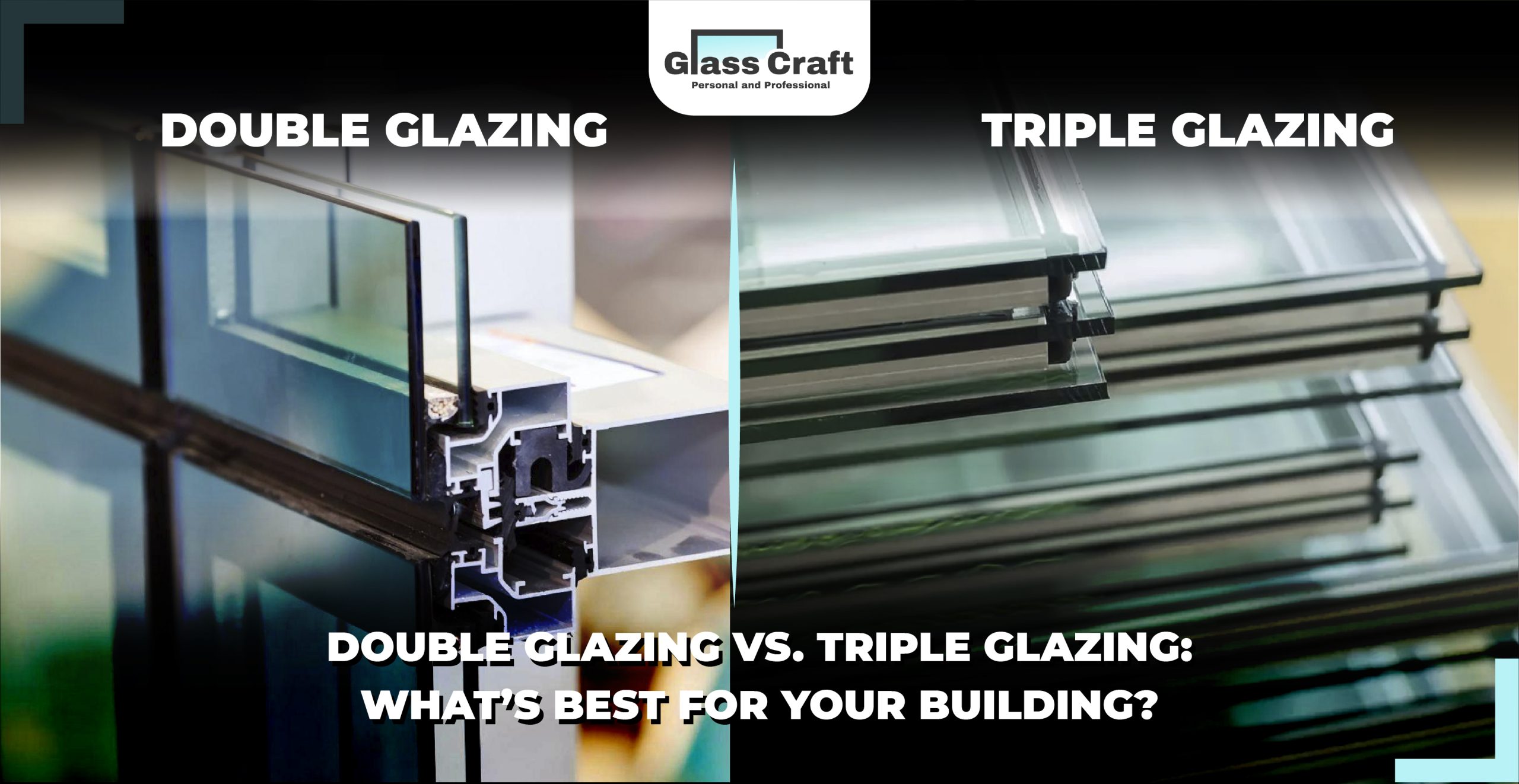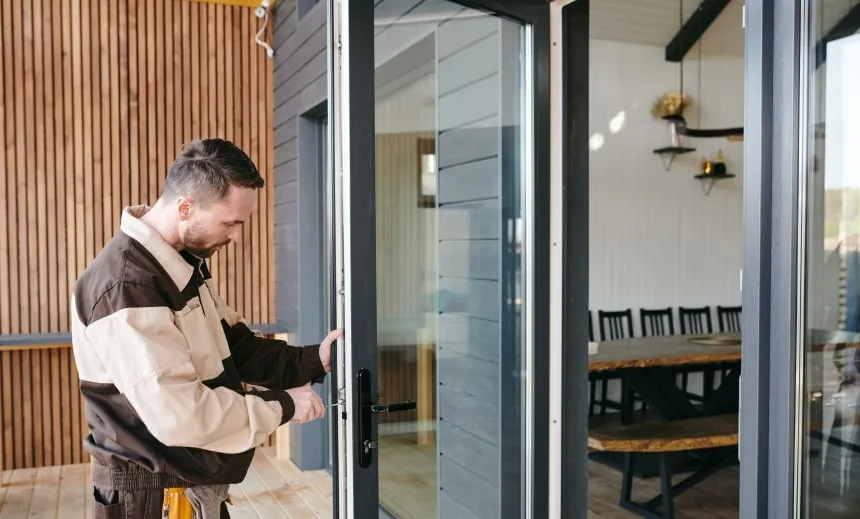Choosing between double or triple glazing when updating your windows might seem like a glassy riddle. Regarding insulation, noise control, and energy economy, both choices have great advantages; however, which one best matches your construction? Enough double glazing; should you go above and beyond with triple glazing? Get your preferred cup of tea (or coffee), and let’s explore this window paradise to see which one best fits your situation!
Double and Triple Glazing Differ in What Ways?
First of all, let us define what precisely double and triple glazing are.
- Double Glazing: Two glass panes with a sealed air—or gas—gap between them constitute double glazing. The area between the panes serves as a buffer that reduces heat flow, therefore preserving the warmth inside in the winter and cold air in the summer.
- Triple Glazing: Triple glazing, as their name implies, consists of three glass panes with two insulating gas-filled gaps between them. Triple glazing provides an additional layer of insulation for enhanced energy efficiency and noise reduction, therefore acting as double glazing on steroids.
Knowing the differences, let’s dissect the advantages and drawbacks of every to choose which fits your particular construction most!
- Double or Triple the Comfort Level Depending on Insulation
For most houses and structures, double glazing provides outstanding insulating value. Enough of the two glass layers and the air space in between will keep your house at a pleasant temperature. If you reside in a moderate-temperature environment and do not see significant temperature swings, this is a wise decision.
Triple glazing is where the magic occurs now, either for colder climes or merely for that additional degree of insulation. Two more insulating air gaps and an additional glass layer provide a better barrier against temperature variations. This might make your house seem like a cool summer refuge during the heat wave or as a comfortable hideaway amid winter. If you live somewhere with severe winters or very hot summers, triple glazing is revolutionary.
Prize winner? For optimal insulation, triple glazing is ideal; for milder temperatures, double glazing performs very well.
- Noise Reduction: A More Calm, Quieter Space
Double glazing is a terrific choice for residences close to airports, busy streets, or loud neighborhoods as it effectively lowers outside noise. The glass and air gap together serves to absorb and lower sound via their soundproofing qualities.
Triple glazing takes noise reduction to the highest degree. The increased insulating gap and third pane of glass significantly help to suppress unwelcome sounds. Triple glazing is your new best friend if you live in a place where peace and quiet are absolutely necessary—say, adjacent to a busy highway or in a noisy city center.
Champions? If your main concern is noise reduction, triple glazing wins once again; for most typical noise levels, double glazing does well.
- Energy Efficiency: Of Which One You Save Most?
- Double Glazing: Already much more energy-efficient than standard single-pane windows, double glazing retains the cool air inside during summer, therefore cutting your energy expenses, and helps to minimize heat loss in winter. But, particularly in severe conditions, it’s not nearly as efficient as triple glazing.
- Triple Glazing: King in energy efficiency is triple glazing. Even more effective barrier against heat transfer created by the third layer of glass and extra gas-filled gap results in even less energy consumption. Triple glazing is the best approach if you want your construction to be as energy-efficient as feasible and lower your carbon footprint.
Winner? Though double glazing is still a great option for most circumstances, triple glazing rules in terms of energy efficiency.
- Durability: Projected Length of Your Investment
Double glazing is renowned for being robust and long-lasting. It’s meant to resist ordinary wear and tear, moisture, and temperature variations. With proper care, it may live for decades.
Although sturdy, triple glazing is somewhat heavier and may need for a stronger frame to handle the additional weight. But the third pane of glass’s increased resilience lets it survive just as long—if not longer—than double glazing.
Winner? Both are long-lasting choices, although triple glazing might need more care to make sure the frame can manage the additional weight.
- Cost: Does the Additional Investment Pay Off?
If your property is in a mild temperature where triple glazing’s added advantages aren’t as required or if you’re working with a restricted budget, double glazing is more reasonably priced than triple glazing.
Because triple glazing adds an extra layer of glass and insulating gas, it does have a greater cost. On the other hand, particularly if you live in a location with severe weather, the long-term energy bill savings and the extra comfort might make the purchase justified.
Winner? Although triple glazing provides greater value over time, particularly for energy savings, double glazing is the more reasonably priced choice.
So, What’s Best for Your Building?
Your particular demands and where you reside will determine this. Double glazing is a fantastic choice with outstanding energy efficiency and noise reduction at a more reasonable price if your climate is moderate. Triple glazing is worth the expenditure, however, if you live in a place with severe winters or summers or if you want the best in energy efficiency and noise reduction.






